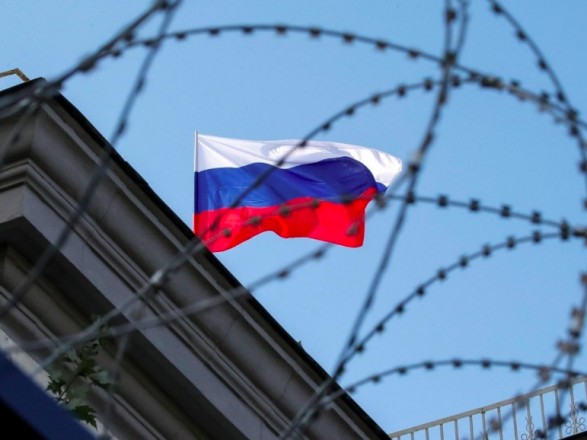KYIV. UkraineGate . 29 . August . 2022 | War News .
The Kremlin’s rhetoric regarding anti-Russian sanctions indirectly indicates that the sanctions are still in effect and have a painful impact on the Russian economy. Currently, the issue of introducing the eighth package of sanctions is being actively discussed.
Quote
“Economic sanctions against Russia are currently one of the most powerful tools of influence on this country. If we look carefully at the Kremlin’s official rhetoric, we are talking about President Putin, the Central Bank of the Russian Federation, and many politicians and businessmen, then they all say that the sanctions are allegedly illegal, harming not only Russia, but also those countries that they are used, and that this is a path to a dead end. But this shows that the sanctions are working. And that is why the factor of sanctions is directly recognized in the official speeches of top government officials and bankers. Of course, they have their price, and we should be grateful to our partners, because due to the application of anti-Russian sanctions, they bear certain economic and political losses,” Burakovsky noted.
Details
Currently, the sanctions policy is carried out in two directions. The first is the sanctions that were introduced after the Russian aggression against Ukraine in 2014 and are extended every six months. The second is the sanctions imposed since the February 24 full-scale invasion, with seven sanctions packages in place so far and an eighth under discussion.
“In the eighth package of sanctions, the EU will probably decide on cooperation with the Russian Federation in terms of gas supply. It is obvious that the EU, one way or another, has to make a political decision regarding the complete rejection of Russian gas, and if this happens, then the EU will determine on what scale and how exactly such a rejection will be implemented. Currently, the EU has decided to reduce the consumption of Russian gas by 15% over the next year. This is a good sign that an embargo on Russian gas is possible, although it will not be applied as quickly as we would like,” Burakovsky said.
In addition, according to the expert, the next package of sanctions may include restrictions on issuing visas for Russians. It is possible that there are currently active discussions and negotiations on how to implement this initiative.
“The third point. It is obvious that there will be an expansion of the list of persons on whom personal sanctions will be imposed. These may not necessarily be politicians, but also middle managers of large Russian state-owned companies, which actually work for the war and provide for the Russian economy. After all, the influence of these companies on the Russian economy is extremely large,” the expert noted.
The economist believes that as a next step, the EU will also revise the mechanisms for introducing sanctions. After all, with the constant introduction of more and more new restrictions, Russia manages to circumvent sanctions to a certain extent. In particular, recommendations from the European Union to member states regarding certain changes in legislation, including the adoption of a decision on the introduction of criminal liability for the circumvention of sanctions, are currently being discussed.
“And I think there will be another important point in the context of the eighth package of sanctions. On the one hand, there are countries that are actively implementing sanctions against Russia, and there are countries that have not formulated their attitude to sanctions in any way or, moreover, openly deny the need for the introduction of sanctions and believe that the West’s reaction to Russian policy is too hypertrophied.
The summit of the G20, that is, the countries that today account for approximately 85% of world production, is due to take place soon. But at the same time, only half of them support anti-Russian sanctions. The other half, including China, actively trades with Russia. In this way, a kind of split arises. And Russia, although not to the extent that it would like, compensates for the negative impact by developing economic relations with the countries of Africa, Latin America, and China. This is a big problem. Despite the fact that the Russian economy plays a minor role in the world economy, it is still a major supplier of many goods. These are energy carriers, and food products, and many materials that are widely used in electronics, and non-ferrous metals used in military production. If the world refuses Russian supplies,
Source: Ukrgate







